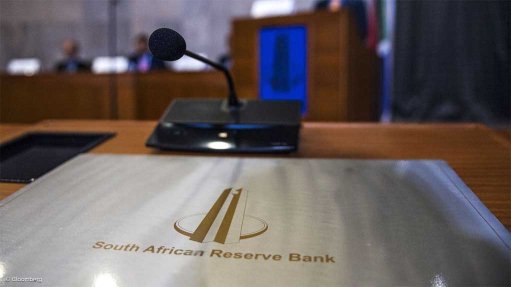Corruption in Zim’s use of almost $1bn from IMF
Elections are fast approaching in Zimbabwe, giving rise to popular expectations and international hopes for change but equally to a blatant increase in government corruption from the last remaining sources of official funding.
Is this uptick in the misuse of official funds a sign that the ruling party, Zanu-PF, believes it is in a fin de regime scenario? Reports from civil society, opposition parties and independent media houses that the Zimbabwe government is misusing the International Monetary Fund- (IMF-) allocated Special Drawing Rights (SDRs) for nefarious purposes come shortly after a January report by the Sabi Strategy Group predicting that opposition leader Nelson Chamisa would defeat incumbent President Emmerson Mnangagwa in elections expected in July or August this year.
The largest funding and spending controversy emerged over the Mbudzi Interchange, a public project aimed at eliminating congestion in the capital, Harare. A recent Government Gazette reported that government took out an $88-billion loan from a controversial source to fund the project after having said, according to local news reports, that it had allocated SDRs equivalent to $144-million to the same project.
According to the gazette, the Zanu-PF government signed the loan agreement with Fossil Mines – a sister company to Fossil Contracting, which was awarded many of the tenders to construct the Mbudzi Interchange – to fund the project. Fossil Mines is owned by Obey Chimuka, who, along with Fossil Contracting, was sanctioned by the US Office of Foreign Assets Control in December, owing to his links to a previously sanctioned individual, Kudakwashe Tagwirei, and his company, Sakunda Holdings. Tagwirei is a Zimbabwean business tycoon with close links to Mnangagwa.
The methodology – government agrees a loan with a private-sector entity, which is then paid by public borrowings, or, as in this case, concessional allocations – is one that Zanu-PF elites have used repeatedly to extract rents from the Zimbabwean economy. Local news reports cite Finance Ministry public relations director Clive Mphambela as saying government would repay the loan using a drawdown of SDRs. The controversy has raised concerns from prominent figures in Zimbabwe, such as former Finance Minister Tendai Biti, and has led to Parliament’s Public Accounts Committee chairperson, Brian Dube, this month calling on Finance Minister Mthuli Ncube to provide further details of the deal. It is unlikely that the Zimbabwe government will disclose this information.
The Zimbabwe government’s track record on SDRs is poor, frequently using them in ways other than they were intended. For those unfamiliar with the instrument, the IMF created SDRs in 1969 to serve as a low-cost foreign exchange reserve asset to support official existing reserves in liquidity-constrained member countries. A member country, generally through its central bank, can exchange SDRs for either freely usable currencies or to repay a loan with the IMF. The IMF discloses the amount of SDRs transferred and the type of transaction used to deploy them but does not account for how hard currency is spent. It is up to the governments of member countries to disclose specific details about how SDRs are utilised – which, as in the case of Zimbabwe, has created an opportunity for corruption.
In September 2009, the IMF allocated about $408-million worth of SDRs to Zimbabwe – the first significant IMF involvement with Zimbabwe for more than a decade – as part of Zimbabwe’s share under a general allocation of SDRs amounting to roughly $251-billion, owing to the global financial crisis. The IMF withheld $102-million of Zimbabwe’s allocation by placing it in escrow, because the country was $140-million in debt to the IMF. At the time of the SDR allocation, opposition politicians raised concerns that Gideon Gono, the then governor of the country’s central bank, the Reserve Bank of Zimbabwe (RBZ), would use the allocation for personal gain. These concerns proved to be warranted. In 2014, Gono’s adviser, Munyaradzi Kereke, provided Zimbabwe’s Constitutional Court with an audit report alleging that Gono and then Finance Minister Biti had siphoned off almost $50-million from the RBZ account that was part of the SDR allocation. Kereke later withdrew his case against Gono and apologised for making corruption allegations.
With the Covid-19 crisis, the IMF waived its traditional reticence and once again allocated SDRs equivalent to $958-million to Zimbabwe in August 2021 as part of a general allocation of SDRs equivalent to about $650- billion to all IMF member countries. Very soon after the release, newspapers criticised the lack of transparency over the Zanu-PF government’s use of SDRs, found a mismatch between how much government said it had spent on the procurement of Covid-19 vaccines using SDR drawdowns and the number of vaccines it had bought. Moreover, local media found that some $80-million SDRs – intended for rural and peri-urban households – was being used in electioneering for the 2023 general elections.
Sabi Strategy’s poll sees Chamisa winning with 53% of the vote and his party, the Citizens’ Coalition for Change, winning the legislature, but it assumes elections will be free and fair. Veteran Zimbabwe watchers know this is impossible, which means that corruption, fraud and misappropriation of this fresh injection of hard currency is just Zanu-PF business as usual.
Article Enquiry
Email Article
Save Article
Feedback
To advertise email advertising@creamermedia.co.za or click here
Press Office
Announcements
What's On
Subscribe to improve your user experience...
Option 1 (equivalent of R125 a month):
Receive a weekly copy of Creamer Media's Engineering News & Mining Weekly magazine
(print copy for those in South Africa and e-magazine for those outside of South Africa)
Receive daily email newsletters
Access to full search results
Access archive of magazine back copies
Access to Projects in Progress
Access to ONE Research Report of your choice in PDF format
Option 2 (equivalent of R375 a month):
All benefits from Option 1
PLUS
Access to Creamer Media's Research Channel Africa for ALL Research Reports, in PDF format, on various industrial and mining sectors
including Electricity; Water; Energy Transition; Hydrogen; Roads, Rail and Ports; Coal; Gold; Platinum; Battery Metals; etc.
Already a subscriber?
Forgotten your password?
Receive weekly copy of Creamer Media's Engineering News & Mining Weekly magazine (print copy for those in South Africa and e-magazine for those outside of South Africa)
➕
Recieve daily email newsletters
➕
Access to full search results
➕
Access archive of magazine back copies
➕
Access to Projects in Progress
➕
Access to ONE Research Report of your choice in PDF format
RESEARCH CHANNEL AFRICA
R4500 (equivalent of R375 a month)
SUBSCRIBEAll benefits from Option 1
➕
Access to Creamer Media's Research Channel Africa for ALL Research Reports on various industrial and mining sectors, in PDF format, including on:
Electricity
➕
Water
➕
Energy Transition
➕
Hydrogen
➕
Roads, Rail and Ports
➕
Coal
➕
Gold
➕
Platinum
➕
Battery Metals
➕
etc.
Receive all benefits from Option 1 or Option 2 delivered to numerous people at your company
➕
Multiple User names and Passwords for simultaneous log-ins
➕
Intranet integration access to all in your organisation


















